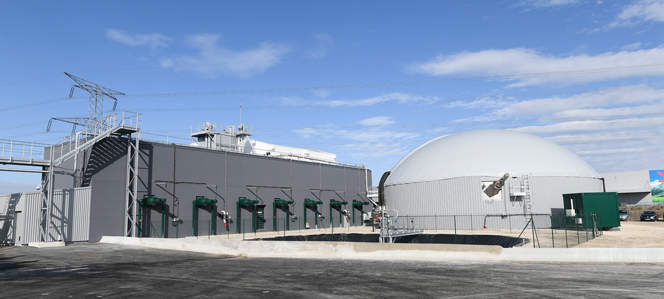French multinational electric utility company Engie has announced plans to invest up to €800m in the next five years for the development of green gases in France.

Image: Engie’s Beauce Gâtinais Biogas facility in France. Photo: Courtesy of Engie.
Engie made this announcement during the inauguration of the Beauce Gâtinais Biogas (BGB) methanization unit.
Engie stated that green gases are a new sector and it can create value and jobs in the country. The utility firm believes that the plan will support an objective of at least 10% green gas being injected into the networks by 2030, as part of the French Energy Transition Law for Green Growth.
Located in the Centre-Val de Loire region, the BGB facility was developed in partnership with members of the agricultural sector.
It will produce 23GWh of biomethane each year, which is equivalent of hot water and heating consumption of 1,750 households.
The facility will be able to process agricultural by-products of plant origin from the AgroPithiviers cooperative and from local agri-food industries together with horse manure.
It could also produce 20,000 tons of organic fertilizers, which will be provided to members of the AgroPithiviers cooperative. The plant’s construction started in May last year and €10m was invested in its construction.
Engie along with its partners aims to invest €2bn in total to produce 5TWh per year of biomethane by 2030.
French energy company’s objective is to support the sector’s industrialization to reduce costs by about 30 to 40% by 2030 and thereby achieve cost parity with natural gas.
Presently, the company is focusing on standardizing, massifying and digitizing projects and it will partner with suppliers to facilitate their expansion in the market.
Engie CEO Isabelle Kocher said: “Gas, which will gradually become green, will play a key role in the decarbonation of our country, along with other sources of clean energy generation.
“Produced on the territory, green gas is easily storable and non-intermittent. As such, it has unique properties that make it the natural partner of electrical renewable energy sources. It will be an important vector of our country’s energy transition.”
